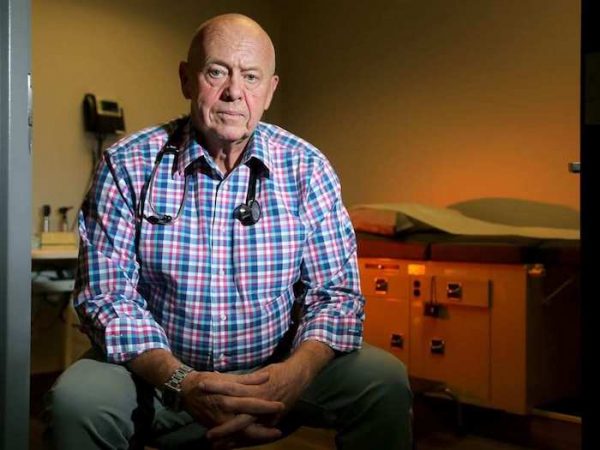
Dr. Gerald Ashe has seen the kinds of things people do if they can’t get help in dying.
A couple of his patients have taken their own lives. Some have told him they are hoarding sleeping pills “just in case.” He says he has seen too many cases of terminal delirium, a condition where an agitated and confused dying patient survives through five to seven days. The patient will die, it’s just a matter of how long it will take.
“It’s common and it’s nasty and it requires palliative sedation. If given the choice, most people would say: ‘I’ll take the five- to 10-minute plan, not the seven-day plan.’”
Ashe has been a family physician for almost 40 years. He offers palliative care in Brockville and is a member of the physicans’ advisory council at Dying With Dignity Canada. He says his support for assisted dying came as the result of many years of “watching people die, helping people to die and watching them suffer and coming to the realization that we can’t relieve all suffering.”
Since assisted dying legislation passed on June 17, Ashe has assisted in the deaths of four patients, and another patient has permission. “They’re content to know they have permission.”
When a patient dies, it’s a “sacred moment,” he says.
“None of us really want our patients to do this. We understand it. We honour their request and their autonomy. We would prefer to provide relief in another way. I have a contract with a patient. I am with you until you die. I am not going to send you off when things get tough.”
Physicians still feel ambivalent about helping patients die. At the Brockville General Hospital, where Ashe works, a survey of the medical staff found about three-quarters agreed or strongly agreed that people should have a right to assisted death, and almost two-thirds felt it should be offered at the hospital. But only 30 per cent pf physicians would be willing to provide assisted death — with proper training — while 43 per cent would not, with the remainder neutral. About three-quarters said they would refer patients, while 13 per cent said they would not refer. The remaining respondents were neutral.
Ashe believes that only a small subset of people will seek assisted dying. In Oregon, laws permit qualified terminally ill adults to request a prescription for a medication to hasten death. With a population of four million people, about 150 permissions for physician-assisted suicide are sought every year in Oregon. Interestingly, only two-thirds of those who request the prescriptiom actually take it.
“Knowledge is empowering. People won’t make that decision because it is available,” says Ashe. “They will choose it because that’s what they want.”
He was nervous at first about going public with his support for assisted dying. In December 2014, he spoke out after a terminal cancer patient in his care shot himself. This summer, he spoke about helping an ALS patient die at home. But feedback from family and colleagues has been gratifying, he says.
“To live through this era and see this come to fruition has been an amazing experience. That we can allow someone to die peacefully, painlessly, speaks volumes abut how far we have come as a society and as a profession.”
Ashe believes the current legislation doesn’t go far enough. He would like to see other patients have access, including people with severe mental illness and competent children. People with mental health problems suffer terribly and Ashe said he can see no reason why they shouldn’t qualify. People over the age of 18 qualify, but not those who are 17. That’s arbitrary, he argues.
“The beauty of dying where and when you want and with whom is pretty amazing,” he says. “One of the reasons why I have been advocating for this isn’t altruistic. I would like to live in a world where this is possible for myself.”
Complete Article HERE!
